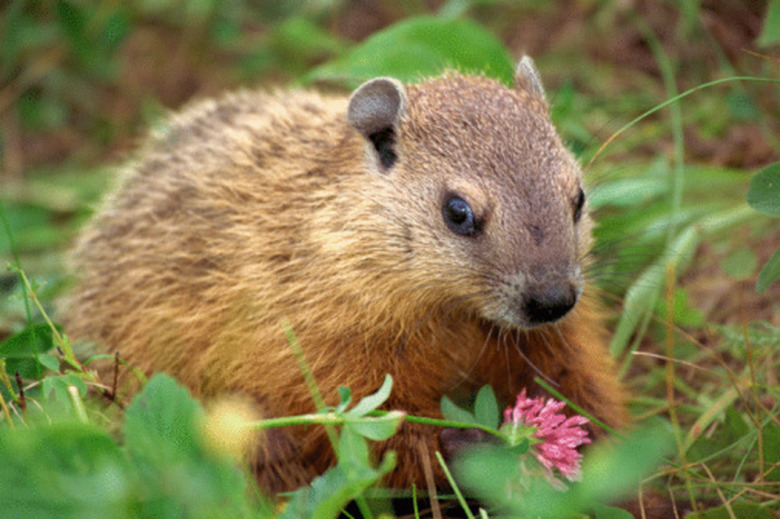What Smells Do Woodchucks Hate?
Marmota monax, commonly known as woodchucks or groundhogs, are rodents closely related to squirrels. To gardeners, woodchucks are destructive pests that are known to dig burrows and eat vegetables before they can be harvested. The woodchuck has a highly sensitive sense of smell and can be deterred with odors it finds repellent, and there are a variety of smells that can do the job.
Cayenne Pepper/Garlic
The taste and smell of powdered cayenne pepper can prevent a woodchuck from eating your plants. Simply sprinkle a liberal dose of cayenne pepper on plants and in your garden dirt to repel woodchucks. Although rain reduces cayenne's effectiveness, there are products that suspend hot pepper in a wax, which is applied directly to plants and will not readily wash off during rains. Leaving sliced hot peppers in the area also can prove effective. Groundhogs also find the smell of garlic, either raw or in powder form, repellent.
Castor Oil
Castor oil is another smell groundhogs hate. Many garden supply stores sell various castor oil sprays to repel groundhogs. The Urban Nature Information Service of McGill University recommends mixing a solution of 1 cup of castor oil with 2 cups of Murphy's oil soap, 1.5 cups of ultra-hot, hot sauce and a quarter of a shot glass of human urine. This should be diluted with water, 1 teaspoon per gallon, and sprayed around the garden or groundhog-infested area.
Ammonia
Groundhogs can't stand the smell of ammonia and immediately leave a burrow tainted by it. One common form of repelling groundhogs is to leave ammonia-soaked rags around the garden and to throw mothballs into burrows. Another way to accomplish this is with kitty litter. Instead of throwing away used kitty litter, pour this ammonia-rich mess into burrows. Ammonia, however, is a toxic substance that may be dangerous to the animal if ingested.
Rotten Eggs/Predator Urine
The powerful smell of rotten eggs is naturally repellent to woodchucks, just as it is to humans. One method of keeping a garden free of woodchucks is to break eggs in the holes of their burrows and let them rot until the smell becomes apparent and woodchucks flee the area. Another scent that makes woodchucks run is the urine of a predator, such as a wolf or coyote. Coyote urine is sold in many garden supply stores and should be sprinkled around the garden or other areas where woodchucks are a problem. The smell of both rotten eggs and predator urine, however, will dissipate over time and must be refreshed frequently to maintain potency.
